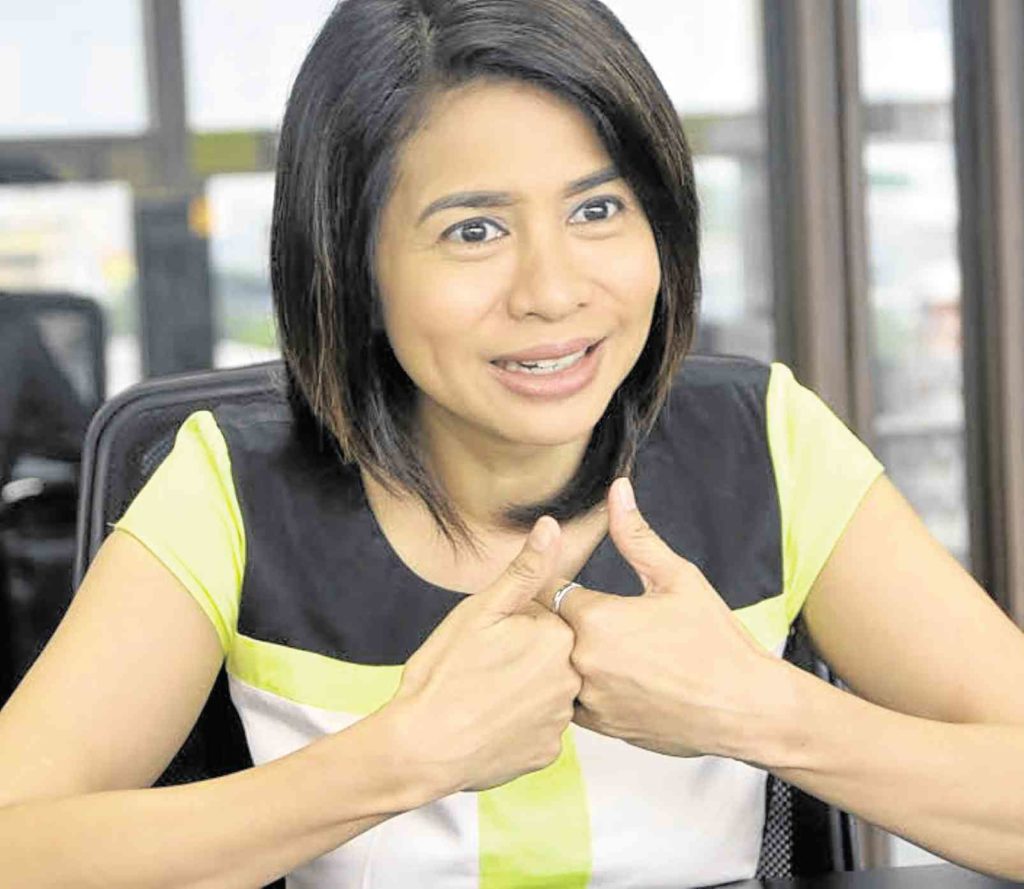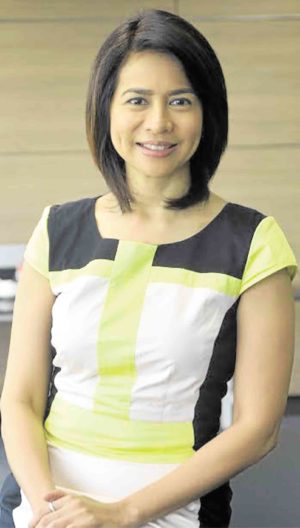Moving on from Pag-IBIG
After six years of working in government, it may come as a surprise to most people that lawyer Darlene Marie Berberabe, former president and chief executive officer of Pag-IBIG Fund (Home Development and Mutual Fund), is now president, CEO and director of a private organization in an entirely different field: Healthcare.
For Berberabe, however, the decision to head local life science equipment and services provider Philab Industries Inc. wasn’t hard for her to make, since her reason for doing so is exactly the same one she had for accepting the Pag-IBIG post six years ago.
“I’m always guided by the question: Where can I contribute the most?” she says.
Prior to her stint in public service, Berberabe worked as P&G Philippines’ chief legal counsel for six years.
The offer to head Pag-IBIG put her at a crossroads in her career, she says, because at the time, a regional role in P&G had also been offered to her—one that would take her and her daughter, Jamie Christine, to Singapore.
Article continues after this advertisement“Initially, I declined the [Pag-IBIG] offer because I had been really considering the Singapore move with my daughter. It was a major decision, and [then] Vice President Binay was in a rush to have a Pag-IBIG president, and because I wasn’t ready, I said, perhaps there are other presidents of banks you could consider,” recalls Berberabe.
Article continues after this advertisementHowever, after a short work trip, Berberabe received a second request from the Vice President for a meeting.
“So we sat down to talk and he said, we’re not sure if you will be appointed, let me submit your CV to the President, and we will have a few more weeks to look for other candidates. I said, yes, and then that weekend, the President already approved the appointments,” she says.
It was after reflecting on that second meeting that Berberabe finally decided to stay and serve her country—even though she had believed that P&G would be the company she would retire from.
“Why did the VP choose me, and why did I get that second chance?” says Berberabe, who admits she had no background on the housing sector. “I said to myself [then], I know that I am hardworking, that I could learn on the job; I know that I’m not corrupt—and that was very, very clear to me, so I thought, okay, maybe government could make good use of the skill set that I have.”
Now that she’s heading Philab, Berberabe says she’s willing and ready to do exactly that—to learn on the job—all over again, since she also has no experience in the healthcare industry.
“[When] I was making myself available for interviews for other companies—most were big companies, [and] the nature of the role was different for each company that was considering me and that I was considering—what attracted me to Philab was, No. 1, the industry that it is in,” says Berberabe, who left Pag-IBIG on Feb. 28, and joined Philab the following day. “[And I told] Philab chair Tom Navasero, I know the skills that I have—I work hard, I’m dedicated, I’m focused. I’m humble enough to say that these are the things I don’t know, but I’m willing to learn, and I work well [both] in teams and individually.”
Established in 1959, Philab has built a reputation of being “the country’s foremost providers of laboratory equipment.”
Among its clients are the University of the Philippines Los Baños, International Rice Research Institute, the Department of Health’s Research Institute for Tropical Medicine, for which Philab designed, built and equipped research and educational labs. The company was also the first to distribute, in 1988, HIV/STD test kits in the country through its subsidiary Royal School Laboratory, and has partnered with the Department of Education as supplier of scientific and educational equipment of over 34,000 elementary schools.
It also established the Genomic Institute of Asia (Gina), a nonprofit research organization that conducts genomic sequencing.
Currently, Philab is focusing on developing self-test kits for dengue, under the brand LABit (which stands for laboratory instant testing) says Berberabe—much like a pregnancy test that you can administer in the comfort of your home.
Joining such company, says Berberabe, was the answer to her question: “Where can I contribute the most?”
Berberabe admits she also likes taking risks—and has been doing so all throughout her educational and professional life. The 49-year-old, who finished—as summa cum laude, no less—her undergraduate Philosophy degree at the University of the Philippines in only three and a half years, says she embraces uncertainty, and rarely plans anything in her career.
“I knew I wanted to be a lawyer, but the time [I graduated], [UP’s] Philosophy department did not have any female teachers. So I applied; they hired me as the first, and I thought, this is history—let me stay for another year,” she says.
She eventually made it to Law school, but she first completed her master’s degree, still in Philosophy.
“After three weeks [of Law school], I took a leave of absence,” Berberabe recalls with a smile. “There was so much studying! I thought, I did not graduate from Philosophy with such high honors only to resume this kind of studying. [So I] took my Master’s, finished, and then during the defense of my thesis, I went to the College of Law and took the evening program, which is the working program.”
Berberabe, who lectured in UP from 2001 to 2008, also spent three years working as associate lawyer for Quisumbing Torres (Baker & McKenzie) Law Office before moving to P&G in 2004.
As she helms Philab, Berberabe says that while she has still to master the industry, she and the company are very much alike, especially in the aspect of risk-taking.
“This is a different kind of company, [one that is] willing to risk hiring a CEO that’s probably not the traditional kind of candidate because [I have] no background on healthcare. In that aspect, we’re the same: Maybe [the company] is looking for a CEO with the basic skill set as a manager,” she says. “It is an insight that I gathered from government: The basic and most important skill is management. If you’re strong technically in that field, it will help; but if you’re not, you can equip your team so that you can get the technical support.”

